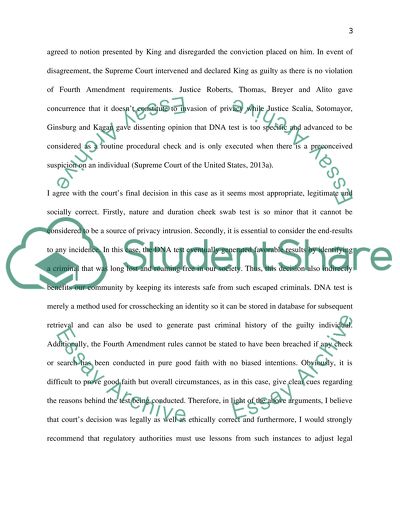Cite this document
(“The cases of Maryland v. King and Florida v. Harris Essay”, n.d.)
Retrieved from https://studentshare.org/law/1483418-whatever
Retrieved from https://studentshare.org/law/1483418-whatever
(The Cases of Maryland V. King and Florida V. Harris Essay)
https://studentshare.org/law/1483418-whatever.
https://studentshare.org/law/1483418-whatever.
“The Cases of Maryland V. King and Florida V. Harris Essay”, n.d. https://studentshare.org/law/1483418-whatever.


